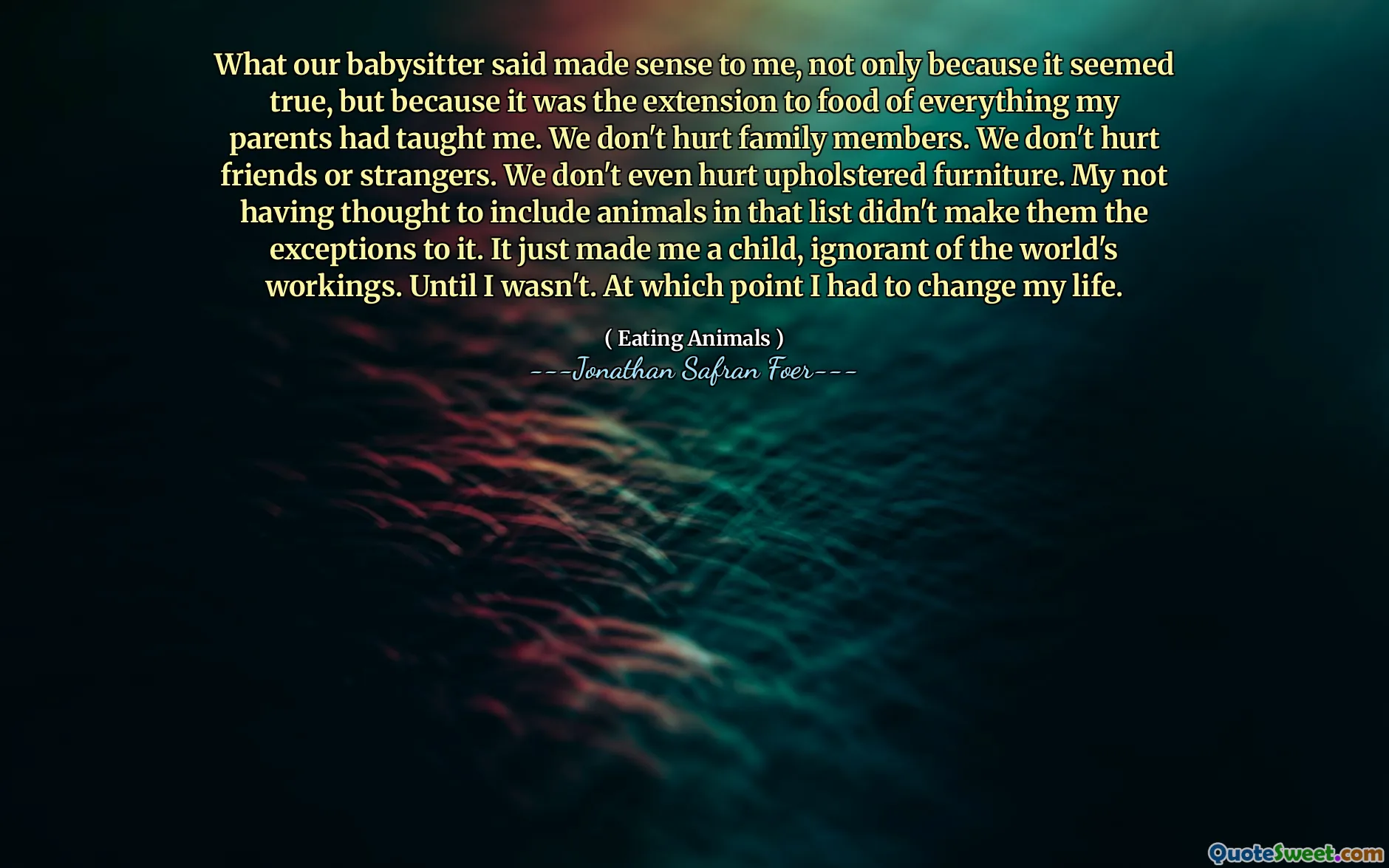
What our babysitter said made sense to me, not only because it seemed true, but because it was the extension to food of everything my parents had taught me. We don't hurt family members. We don't hurt friends or strangers. We don't even hurt upholstered furniture. My not having thought to include animals in that list didn't make them the exceptions to it. It just made me a child, ignorant of the world's workings. Until I wasn't. At which point I had to change my life.
In Jonathan Safran Foer's "Eating Animals," the narrator reflects on a profound realization sparked by a babysitter's words about the ethics of eating. The babysitter's perspective aligns with the moral teachings the narrator received from their parents, emphasizing a commitment to not harming loved ones or even possessions. This connection prompts a deeper understanding of compassion that extends to all beings, including animals, revealing a gap in the narrator's childhood reasoning.
As the narrator matures, the oversight of not considering animals as part of this moral framework becomes evident. The experience marks a significant transition in the narrator's life, compelling a reevaluation of their choices regarding food and the ethical implications of those choices. The narrative illustrates the journey from innocence to awareness, highlighting the necessity of aligning personal values with actions, especially in regards to the treatment of animals.





